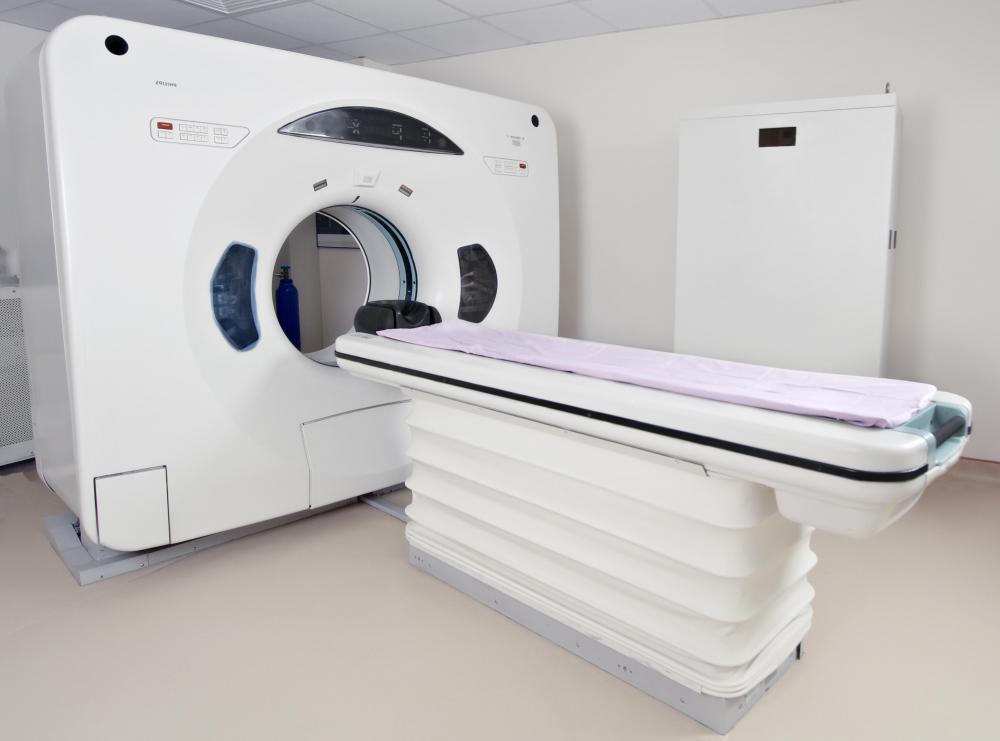At WiseGEEK, we're committed to delivering accurate, trustworthy information. Our expert-authored content is rigorously fact-checked and sourced from credible authorities. Discover how we uphold the highest standards in providing you with reliable knowledge.
What is an MRI Arthrogram?
A magnetic resonance imaging (MRI) arthrogram is a medical diagnostic tool used to allow the doctor to examine the state of the body's cartilage. The doctor will inject a contrast dye and then take x-ray images. It is performed on a joint to diagnose abnormalities, such as swelling or pain, that may indicate a tear or other degeneration of the cartilage. An MRI arthrogram may also reveal a disease of the cartilage or the growth of an abnormal cyst. This procedure is non-invasive and does not typically cause any side effects worse than mild discomfort.
Even though an MRI arthrogram is a simple procedure, the patient should still take care to disclose any medical conditions. The x-ray technician will need to know if the patient has any allergies, arthritis, or asthma. An infection around the joint to be examined may interfere with the results. The technician also needs to know if the patient is diabetic or has a bleeding disorder, kidney disease, or has had surgery recently. In addition, these imaging tests are rarely performed on women who are pregnant.

Since an MRI arthrogram is performed while the patient is fully conscious, not under general anesthesia, restricting food and water intake is not necessary. The exception to this is if the patient is a child who is nervous about the procedure and will require a sedative to remain still throughout it. Some adult patients may also request a sedative, particularly if they have claustrophobia or an anxiety disorder.

Prior to the procedure, the patient will be asked to remove all jewelry, body piercings, and any removable dental work, such as dentures. Patients must also not have any metallic items, such as hairpins, pens, or metal zippers. Other items may interfere with the machinery as well, such as hearing aids and credit cards, because of the magnetic strip. Those who have implanted devices, such as pacemakers, cochlear implants, and artificial limbs or heart valves, must also inform the technician of their presence.

The patient will likely be asked to wear a hospital gown for the procedure. He will lie on an x-ray table and the doctor will numb the joint before injecting a contrast dye into it. The doctor will then ask the patient to lie on the “bed” of the MRI machine, which is then inserted into a tunnel within the scanner. Patients will need to lie completely still for the scan to work properly. This portion of the procedure may take between 20 to 90 minutes.
There is no required recovery time for patients undergoing an MRI arthrogram, however it is recommended that patients avoid strenuous exercise for about 12 hours. A “crackling” sound may be noticeable in the examined joint for a day following the procedure. This is normal, and is a result of the contrast dye. An MRI arthrogram is considered to be a safe procedure, and side effects are very rare. Some patients may experience mild, temporary pain, swelling, or slight discomfort.
AS FEATURED ON:
AS FEATURED ON:













Discuss this Article
Post your comments